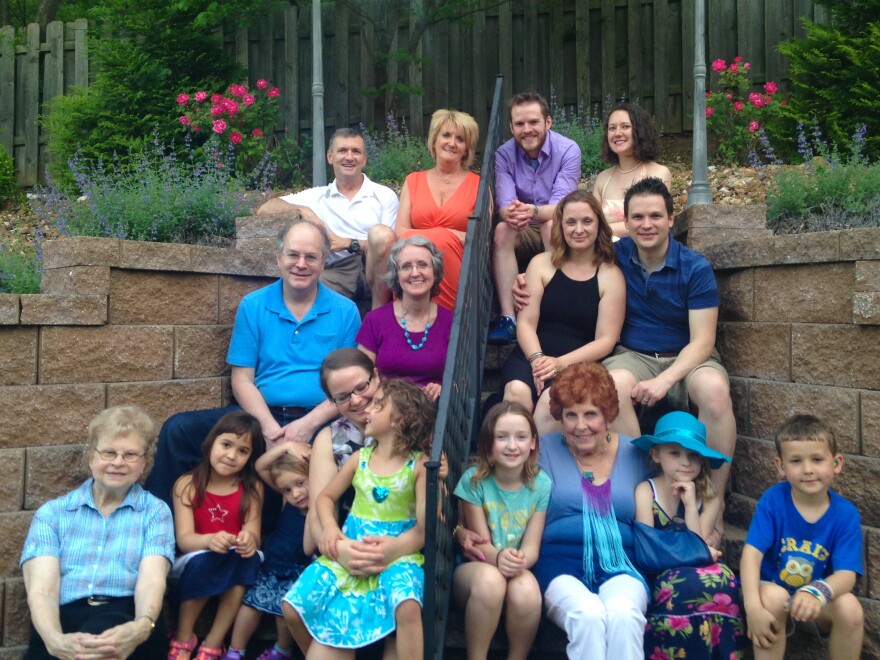Most of us, at some point, will know someone who is struggling with a life-threatening illness. More than one in three U.S. residents are diagnosed with a form of cancer in their lifetime, and one in nine adults over the age of 65 are living with Alzheimer’s disease.
But when a close friend or loved one shares that they have a serious health issue, we’re often left not knowing what to do or what to say.
St. Louis Public Radio used the Public Insight Network to ask our listeners what helped them get through a difficult health issue. Here’s what they said.
Victoria Benson, St. Louis. Her husband was diagnosed with dementia.
Wish they had said, ‘What can I do to help?’ and then followed up, even if it was just to make a lunch date.
Brenda Ringo, Uplands Park. Her close friend was hospitalized for a hereditary disease.
People diagnosed with an illness don’t want pity. They want to know that they are not in this thing alone. When my mom passed, I heard 'I’m sorry' so much. Just being there, even if you don’t have the right words to say ... that’s just something I always remember.

Stephen Salniker, Woodson Terrace. Diagnosed with early onset dementia last year.
Many internists don’t know much about Alzheimer’s and dementia, and in my case, I asked questions that [my doctor] seemed unable or unwilling to answer. And I don’t know if it relates to not wanting to be the purveyor of bad news or if he did not have an answer.
Leeli Davidson 55, of St. Louis. Diagnosed with stage I breast cancer in 2008.
Often we all want to do something practical to help the person, and that can be really great. But sometimes I just needed to hang out without talking about it — just to talk about movie, gossip or the weather or how my friend was doing, mundane things, helped. Talking about it 24/7 was stressful and ultimately pointless.
Brian Witherspoon, St. Louis. His late wife, Jan Good was diagnosed with an aggressive brain cancer and died in 2013.
Offer whatever assistance you can. Do not try to relate by telling of someone else’s bad circumstance. Be available to visit or call to say, ‘I care about you.’ Or ‘I am thinking about you.’ Be available. Be kind.

Debbi Heffern, St. Louis County. Diagnosed with stage IV colon cancer in 2009.
My husband was a rock. He took care of all of the research. I was afraid to do too much research because then I might hear things that were not encouraging. My job was to figure out the survival strategies to make it through. That’s why I’m still here.
Matt Perry, St. Joseph. Works as a psychiatrist.
Avoid saying what comes naturally to many people: 'It’ll be OK, don’t worry about it. This is often received as, 'Your worry about this is invalid.’ I think that bringing prepared food over to family/friends that are ill is simple but powerful because it’s tangible support and it connects at a deep level.
Nina Brewer, St. Louis. Diagnosed with bladder cancer in 2009 and again in 2014.
I wish my friends had said anything. I wish they had said, ‘We’re right here with you and we’ve got your back. We’ve known each other too long to let this phase us.’ I wish they had asked how I was feeling about the news.
Janise Barnes Owens, East St. Louis. Her mother was diagnosed with lung cancer in 2012.
I think people should avoid saying, ‘It’s going to be okay.’ When clearly in some cases it’s not.
This story was reported with the Public Insight Network. To learn more or join our conversations, click HERE.
Follow Durrie on Twitter:@durrieB.



